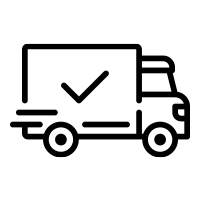What is Astronauts?
Astronauts are someone who has been trained to drive and / or travel with a spacecraft, work in space, and carry out activities related to human space exploration. Most astronaut careers are spent on extensive training, because every trip or space mission is always very risky.
Minimum education level
PT3
SPM
STPM
Diploma
Degree
Average Salary
Example of a Job Position
Task
Knowledge
Mathematics
Knowledge of arithmetic, algebra, geometry, calculus, statistics, and their applications.
Computers and Electronics
Knowledge of circuit boards, processors, chips, electronic equipment, computer hardware and software, including applications and programming.
Engineering and Technology
Knowledge of practical applications in engineering and technology. This includes the application of principles, techniques, procedures and equipment for designing and producing various goods and services.
Physics
Knowledge and predictions about the principles of physics, law, relations between the two, and applications for understanding liquids, materials, atmospheric, mechanical, electrical, atomic, atomic sub-structures and processes.
Geography
Knowledge of principles and methods in explaining land, sea and air mass features, including their physical characteristics, location, reciprocal relationships, and distribution of plant, animal and human life.
Biology
Knowledge of plant and animal organisms, their tissues, cells, function, interdependence, and their interactions with the environment and each other.
Chemistry
Knowledge of the composition, structure and chemical properties of substances and chemical processes and transformations that occur. Includes the use of chemicals and their interactions, alarms, production techniques and disposal methods
Mechanical
Knowledge of machinery and equipment, including design, function, repair and maintenance.
Skills
Complex Problem Solving
Identify complex problems and review related information in order to develop and evaluate options and solutions that can be applied.
Critical Thinking
Using logic and reasoning to identify the strengths and weaknesses of alternative solutions, conclusions, or approaches to the problems handled
Consideration and Decision Making
Consider the shortcomings and advantages of potential action choices to choose the most appropriate action.
System Analysis
Determine how the system should work and how the changes in conditions, operations, and environment affect the results achieved.
Science
Use scientific rules and methods to solve problems.
Operation and Control
Control equipment and operating systems.
Creative
Ability to imagine and create original ideas, especially related to artistic work.
Equipment Selection
Determine the type of tools and equipment needed to do the work.
Capability
-
1
Near Distance Vision - The ability to see details at close range (a few feet away from the object).
-
2
Mathematical Reasoning - The ability to choose the right mathematical methods and formulas to solve problems.
-
3
Ability To Count - The ability to do added, less, times, divide quickly and precisely.
-
4
Body Endurance - The ability to use all of your body's physical strength over a long period of time without feeling out of breath.
-
5
Control Precision - The ability to quickly and repeatedly ensure control of the engine and vehicle for the right position.
-
6
Remote Vision - The ability to see details in the distance.







